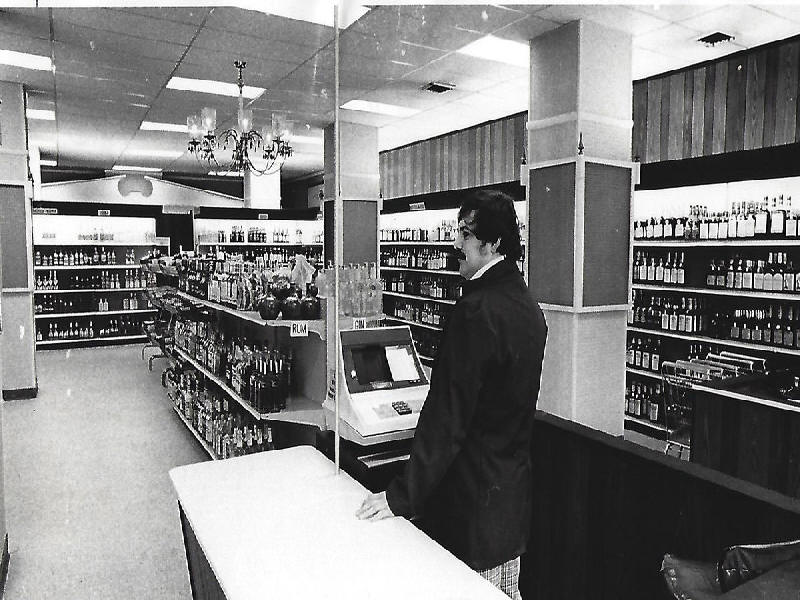
State Liquor Stores
------------------------------------------------------------------------------------------------------

This photo of the interior of the state liquor store at 1108
3rd. Ave. was taken in 1975, after
the state began converting ita liquor stores to supermarket style
self-service operations.
------------------------------------------------------------------------------------------------------
Editor's note: This is the 214th in a series of articles recalling vanished Huntington scenes.
HUNTINGTON -- For years, buying a bottle of booze in
Huntington was a bit like
going to your bank and dealing with a teller.
After nationwide Prohibition was repealed, the sale of bottled
booze was legalized.
But in 1935 the West Virginia Legislature established a network of state-run
stores as the only places where bottled booze could be sold.
No privately run liquor stores were allowed.
Making a purchase in one of the state-run liquor stores
was a carefully choreographed experience.
When you entered the store, there was nary a bottle of booze
anywhere
in sight. It was all tucked away in the back of the store.
You had to join a line and wait your turn at a small window
where a
seated clerk would take your order. A large poster on the wall
of the store listed the various brands of liquor sold.
If, when you reached the front of the line, you asked the
clerk if the store
had Old Tennis Shoe or some other brand, he likely would point
to the posted list and tell you to look it up yourself.
You gave the clerk your order and paid him. He filled out a
slip
of paper and handed it to a man who went to the shelves
in back and fetched your purchase.
When the man returned, he gave it to the seated clerk who
stuck it in a brown paper bag and handed it to you.
Coveted jobs in the state-run liquor stores often went to
individuals
who voted "the right way" come election time.
In 1970, West Virginia took a big step forward when, following
the lead of other states, it began converting its state-run liquor
stores to supermarket style self-service operations.
And in 1990, the state took an even bigger step when, again
following
the example of other states, it exited the retail liquor business,
closing its state-run stores and selling licenses to private
retailers. (Meanwhile, the state still clings to
the wholesale end of the booze business.)
-----------------------------------------------------------
Note: This Article and picture appeared in the Herald-Dispatch Newspaper on Dec. 18, 2017.
-----------------------------------------------------------
[ Back ]